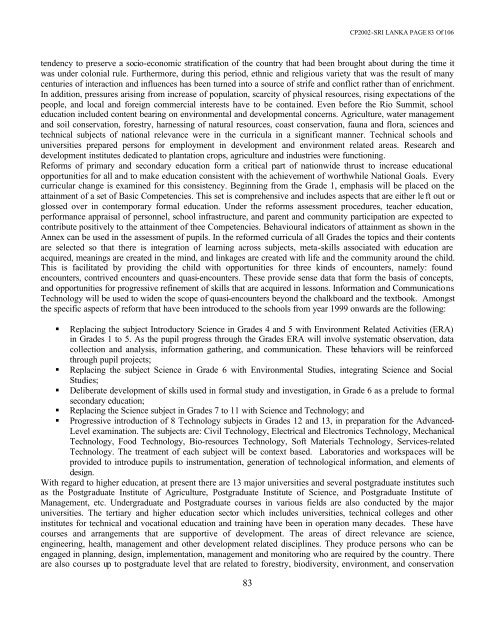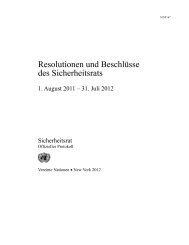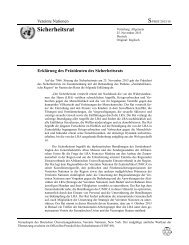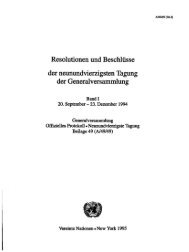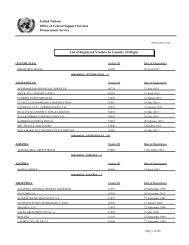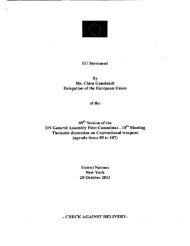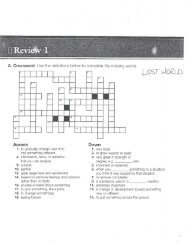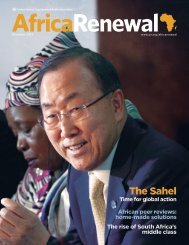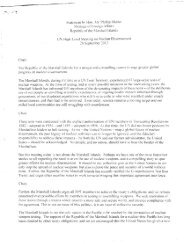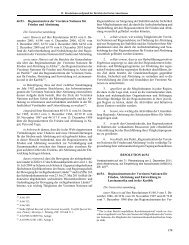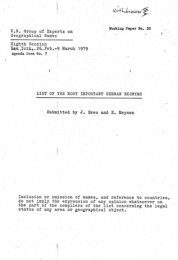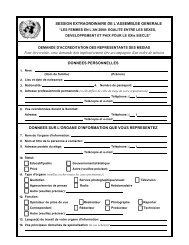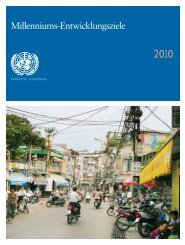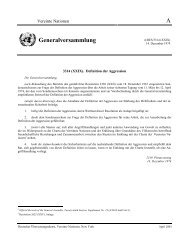SRI LANKA COUNTRY PROFILE
SRI LANKA COUNTRY PROFILE
SRI LANKA COUNTRY PROFILE
You also want an ePaper? Increase the reach of your titles
YUMPU automatically turns print PDFs into web optimized ePapers that Google loves.
83<br />
CP2002-<strong>SRI</strong> <strong>LANKA</strong> PAGE 83 Of 106<br />
tendency to preserve a socio-economic stratification of the country that had been brought about during the time it<br />
was under colonial rule. Furthermore, during this period, ethnic and religious variety that was the result of many<br />
centuries of interaction and influences has been turned into a source of strife and conflict rather than of enrichment.<br />
In addition, pressures arising from increase of population, scarcity of physical resources, rising expectations of the<br />
people, and local and foreign commercial interests have to be contained. Even before the Rio Summit, school<br />
education included content bearing on environmental and developmental concerns. Agriculture, water management<br />
and soil conservation, forestry, harnessing of natural resources, coast conservation, fauna and flora, sciences and<br />
technical subjects of national relevance were in the curricula in a significant manner. Technical schools and<br />
universities prepared persons for employment in development and environment related areas. Research and<br />
development institutes dedicated to plantation crops, agriculture and industries were functioning.<br />
Reforms of primary and secondary education form a critical part of nationwide thrust to increase educational<br />
opportunities for all and to make education consistent with the achievement of worthwhile National Goals. Every<br />
curricular change is examined for this consistency. Beginning from the Grade 1, emphasis will be placed on the<br />
attainment of a set of Basic Competencies. This set is comprehensive and includes aspects that are either le ft out or<br />
glossed over in contemporary formal education. Under the reforms assessment procedures, teacher education,<br />
performance appraisal of personnel, school infrastructure, and parent and community participation are expected to<br />
contribute positively to the attainment of thee Competencies. Behavioural indicators of attainment as shown in the<br />
Annex can be used in the assessment of pupils. In the reformed curricula of all Grades the topics and their contents<br />
are selected so that there is integration of learning across subjects, meta-skills associated with education are<br />
acquired, meanings are created in the mind, and linkages are created with life and the community around the child.<br />
This is facilitated by providing the child with opportunities for three kinds of encounters, namely: found<br />
encounters, contrived encounters and quasi-encounters. These provide sense data that form the basis of concepts,<br />
and opportunities for progressive refinement of skills that are acquired in lessons. Information and Communications<br />
Technology will be used to widen the scope of quasi-encounters beyond the chalkboard and the textbook. Amongst<br />
the specific aspects of reform that have been introduced to the schools from year 1999 onwards are the following:<br />
� Replacing the subject Introductory Science in Grades 4 and 5 with Environment Related Activities (ERA)<br />
in Grades 1 to 5. As the pupil progress through the Grades ERA will involve systematic observation, data<br />
collection and analysis, information gathering, and communication. These behaviors will be reinforced<br />
through pupil projects;<br />
� Replacing the subject Science in Grade 6 with Environmental Studies, integrating Science and Social<br />
Studies;<br />
� Deliberate development of skills used in formal study and investigation, in Grade 6 as a prelude to formal<br />
secondary education;<br />
� Replacing the Science subject in Grades 7 to 11 with Science and Technology; and<br />
� Progressive introduction of 8 Technology subjects in Grades 12 and 13, in preparation for the Advanced-<br />
Level examination. The subjects are: Civil Technology, Electrical and Electronics Technology, Mechanical<br />
Technology, Food Technology, Bio-resources Technology, Soft Materials Technology, Services-related<br />
Technology. The treatment of each subject will be context based. Laboratories and workspaces will be<br />
provided to introduce pupils to instrumentation, generation of technological information, and elements of<br />
design.<br />
With regard to higher education, at present there are 13 major universities and several postgraduate institutes such<br />
as the Postgraduate Institute of Agriculture, Postgraduate Institute of Science, and Postgraduate Institute of<br />
Management, etc. Undergraduate and Postgraduate courses in various fields are also conducted by the major<br />
universities. The tertiary and higher education sector which includes universities, technical colleges and other<br />
institutes for technical and vocational education and training have been in operation many decades. These have<br />
courses and arrangements that are supportive of development. The areas of direct relevance are science,<br />
engineering, health, management and other development related disciplines. They produce persons who can be<br />
engaged in planning, design, implementation, management and monitoring who are required by the country. There<br />
are also courses up to postgraduate level that are related to forestry, biodiversity, environment, and conservation


